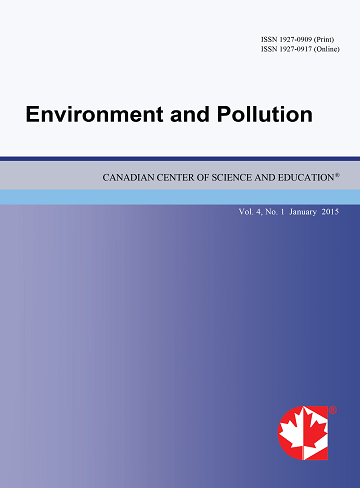Some Elemental Content of Soil Within Catchment of River Jakara in Kano, Nigeria
Abstract
The use of untreated urban wastes and domestic sewage contaminated water for the irrigation of agricultural soils is on the rise particularly in the developing countries and is a public health concern with regards to the consumption of vegetables and fruits produced in them which may indirectly accumulate heavy metals in their edible portions. Using the atomic absorption spectrophotometry (AAS), concentrations of Ca, Mg, Na, K (essential bulk elements), Pb, Cd, Cr, Ni, Cu, Zn, Co and Fe (trace elements) were determined in 3 designated areas within the catchment area of River Jakara in Kano Nigeria. Samples were collected from two depths 0-15cm and 15-30cm to cover both dry and wet seasons. The mean concentrations of elements obtained ranged from 0.026 mg/g Cd to 46.83 mg/g Fe and occurred in the magnitude of Fe > Ca > K > Na > Pb >Zn > Co > Cu >Cr > Ni > Cd. The concentrations of the trace elements in the soils in the two depths exceeded the international recommended permissible limits establishing the pollution of the irrigation soils with the trace elements investigated. Based on the findings, it is recommended among others that the relevant organ of government should find an alternative farmland for the farmers within the catchment area of River Jakara where unpolluted waste sources can be utilized for the irrigation of vegetables.
 PDF
PDF
